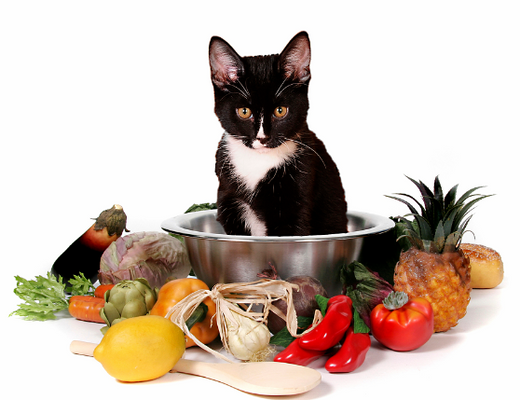Common food items such as Raw Fish/Meat/Eggs and Milk can wreck havoc on your cat’s healthy digestive system. The cat’s metabolism is not only very different from humans but also dogs. You may think that cats and dogs are primarily hunters and therefore may be given a similar diet. However the fundamental biological difference between the two lies in the cat being a carnivore and the dog an omnivore.
Definitely avoid to include these food items in your pet cats' diet to keep your kitties mouse ready. Always!
Raw Fish/Raw Meat- Its consumption results in deficiency of vitamin B1 also called Thiamine. A certain compound found in such food items disintegrates thiamine that is otherwise very essential for cats. If raw meat or fish is fed to the pet, it can cause spasms, disorders of the nervous system, appetite loss and in extreme cases fatality.
Raw Eggs- Salmonella germ that is found inside raw eggs can cause food poisoning. If ingested accidentally, watch out for signs such as loose stools, nausea and weariness. Another problem with raw eggs is the presence of enzyme called avidin that adversely affects the absorption of vitamin B- Biotin. The deficiency of which can lead to an unhealthy skin and coat.
Alcohol and Tobacco- Needless to say these substances are not only bad for your pet cat but humans as well. Even if a tiny amount of alcohol is ingested by the feisty feline it can cause severe harm to its brain as well as liver damage. Also we need to highlight the possibility of alcohol being formed in the cat’s stomach upon consuming yeast dough (used in producing breads). Therefore any such item including desserts containing alcohol should be kept out of your cat’s reach.
The nicotine in tobacco can lead to digestive problems, nervous disorders, an increased heart rate and even your cat’s death.
Tuna- A majorly tuna diet can never provide the cat with the requisite nutrients important for its survival. Apart from thiamine deficiency, it will leave you with an undernourished pet cat.
Fish should be more like a rare treat for the pet and not the main element of a cat’s diet. Fish contain harmful water contaminants and chemicals such as mercury. This could lead to mercury poisoning in cats that is characterized by an inability to walk properly and neurologic disorders.
Garlic and Onions- Whether in raw, cooked or powdered form, these are not safe for your feline. Onion and garlic consumption can cause anemia in your cat by destructing the red blood cells. These two items contain disulfides and sulfoxides that are the main culprits.
Salt- Salt poisoning can cause vomiting, spasms, can damage the kidneys, lead to unconsciousness and also death. An electrolyte imbalance is noticed along with dehydration.
Sweet food stuffs- The theobromine in chocolates is toxic to cats. Apart from chocolates other sugary items are harmful too as they often result in obesity, poor dental health and older cats are seen commonly suffering from diabetes mellitus.
Fruits such as grapes, raisins and currants - should never be given to cats they cause kidney failure.
Also the pit of Apricot fruit contains cyanide and is not good for the cat.
Tea, Coffee, Energy drinks/Soda- The caffeine in these drinks can cause problems of the heart, increased breathing, restlessness, and involuntary muscle movements. Look out for symptoms such as nausea, seizures, unconsciousness and hyperactivity.
Dairy Products and Milk- If your cat is lactose intolerant steer away from feeding it milk or other dairy items as they may lead to stomach upset.
Bones from meat sources- Meat bones such as that from fish or poultry can lead to cuts and wounding of the organs and glands responsible for digestion. Bones may even prove to be an obstruction in the digestive system.
Fat trimmings- Its consumption can cause inflammation of the pancreas. Pancreas performs important functions such as producing insulin thereby aiding in the breaking down of sugar. Another of its function is to produce enzymes that help in digesting the nutrients.
Never feed the cat dog-food as it will certainly cause health complications along with dietary imbalances. To avoid your pet feline from intake of foodstuffs it should not eat, one obvious solution is to store all these items at a place where your pet cannot reach.
In case you think the pet has consumed even a small amount of any such food, contact the vet for advice on the required care & treatment; however ingestion of a little quantity may not do much harm.
The treatment will involve administering intravenous fluids to the cat and the vet will carry out blood tests to check the functioning of organs. You will have to hospitalize the pet until its condition improves.
Article Resource Center:
http://www.peteducation.com/article.cfm?c=1&aid=1029
http://www.petmd.com/cat/centers/nutrition/slideshows/dangerous-foods-for-cats

